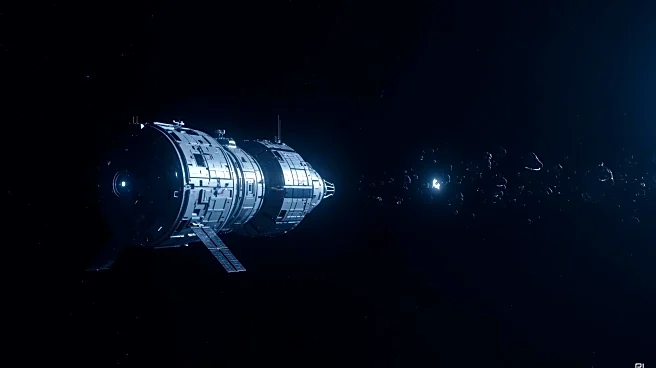What's Happening?
Three Chinese astronauts, known as taikonauts, are currently stranded on the Tiangong space station after their return craft was damaged by space debris. The incident occurred when a tiny piece of space junk hit the vehicle's viewing port, rendering it unsafe
for travel. The China Manned Space Agency (CMSA) is working to send a replacement craft, with a launch scheduled for November 25. The astronauts, part of the Shenzhou 21 mission, are facing uncertainty as they await a safe return to Earth. This situation marks the second time in recent years that astronauts have been stranded in orbit due to technical issues, highlighting the growing problem of space debris.
Why It's Important?
The stranding of astronauts on the Tiangong space station underscores the increasing risks posed by space debris in Earth's orbit. As more satellites and space missions are launched, the likelihood of collisions with debris rises, posing significant challenges to space exploration and safety. The incident highlights the need for international cooperation and strategies to mitigate space debris and ensure the safety of astronauts. It also raises concerns about the reliability of current space technology and the preparedness of space agencies to handle emergencies. The situation serves as a reminder of the complexities and dangers associated with human spaceflight.
What's Next?
CMSA is preparing to launch a replacement craft to bring the stranded astronauts back to Earth. The success of this mission will be crucial in ensuring the safety of the taikonauts and restoring confidence in China's space program. The incident may prompt discussions on improving space debris tracking and management to prevent future occurrences. Additionally, space agencies worldwide may review their protocols and technologies to enhance the safety and reliability of space missions. The outcome of this situation could influence future international policies on space exploration and debris mitigation.
















